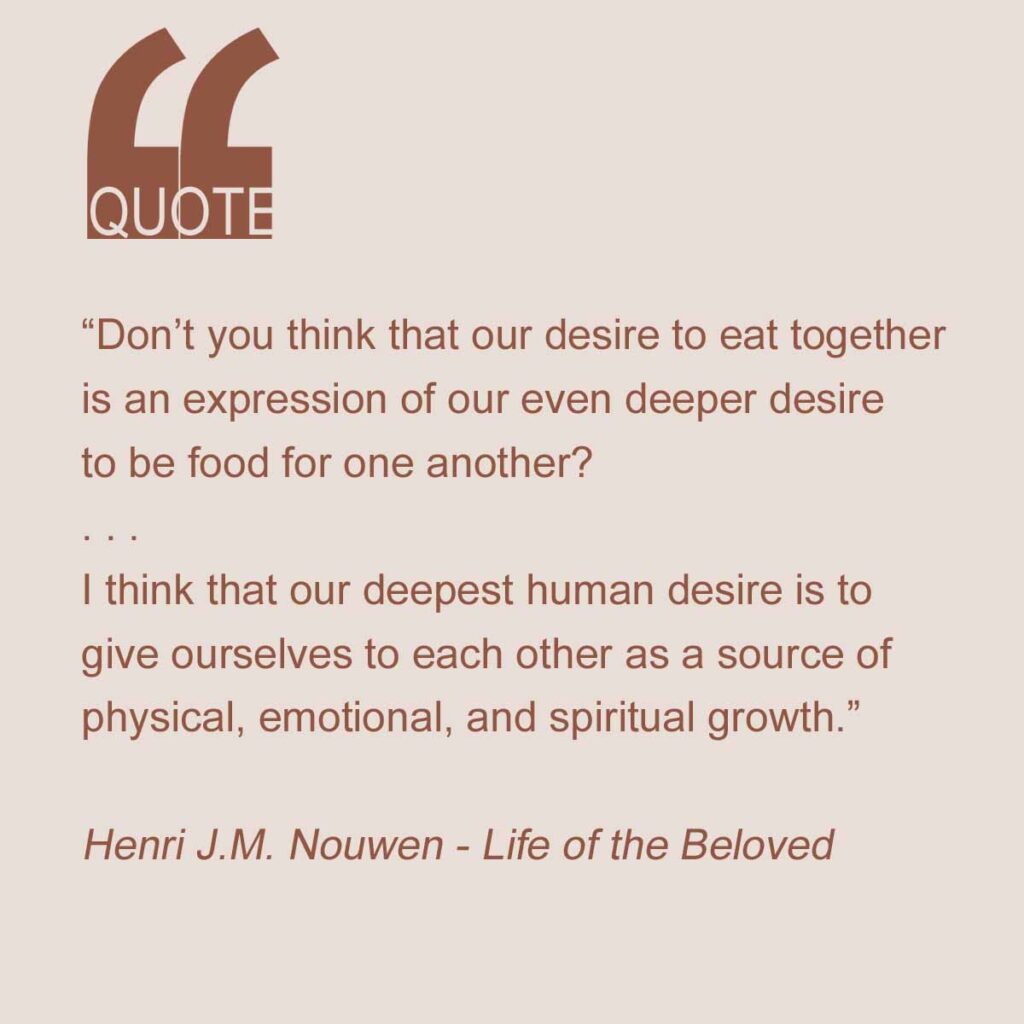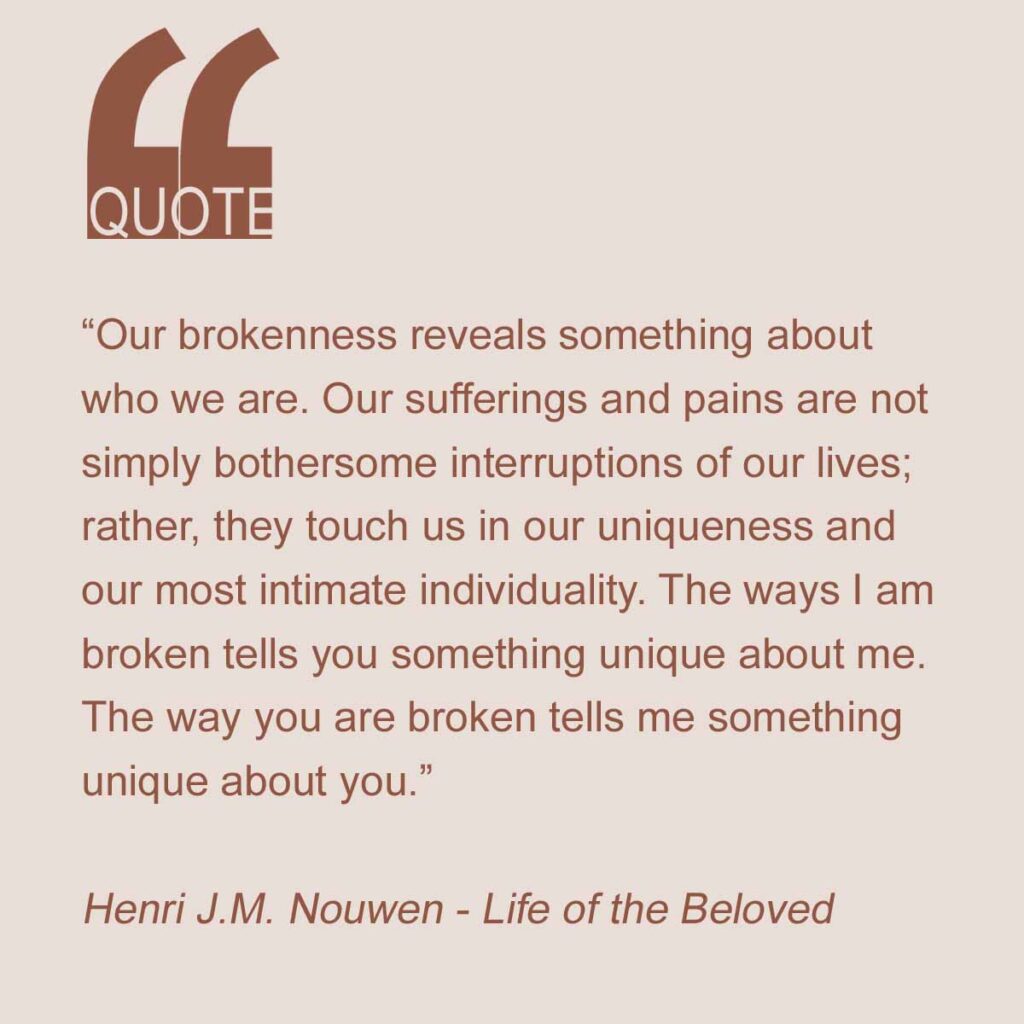In a Harvard Study, post-covid research showed that one in three people suffer from loneliness. In fact, as the numbers keep coming in, that one is rising. When you’re in a room of many, almost half the people you’re surrounded with are in some way experiencing loneliness – they’re enduring ongoing feelings of isolation and a longing to love and be loved.
If you’re lonely, you’re not alone.
Loneliness is not something you experience from your outside environment, rather it’s an internal view of your understanding to outside stimuli. This is why, in a room of many people one can feel very alone.
My goal in this article is to give you understanding and tools to move you out of loneliness and into fellowship. In order to do that you will have to be honest with yourself. Loneliness is an internal struggle; the good news is that God has given us His Spirit to lead us out and into freedom – if we’re honest with ourselves.
For the word of God is living and active, sharper than any two-edged sword, piercing to the division of soul and of spirit, of joints and of marrow, and discerning the thoughts and intentions of the heart. Hebrews 4:12
You were created with an intrinsic need to belong. Therefore, the desire to be with others, connected, and experience belonging is normal and good! It’s healthy! It’s the way God made it. In Genesis 2:18, God said, “It is not good for man to be alone.” He then made Eve. Even God Himself is a triune God, there is fellowship within the parameters of God, Jesus, and Holy Spirit (Gen. 1:26).
Loneliness was never the intent of creation.
In the book of Hebrews, Paul gives us a lesson in how to avoid loneliness … “consider how to stir one another to love and good works.” Loneliness causes you to look at yourself instead of another. Your thoughts then turn to negativity and make assumptions … no one likes me, I’m alone, I don’t fit in, they don’t want me, there’s something wrong with me.
This is why Paul says “consider” – he is telling us to direct our thoughts toward another and away from ourselves. What you focus on, (or “consider”) you will draw near to you. As you focus on encouraging another, you will draw near to fellowship.
And let us consider how to stir up one another to love and good works, not neglecting to meet together, as is the habit of some, but encouraging one another, and all the more as you see the day drawing near. Hebrews 10:24

Loneliness is a result of an unwillingness to be vulnerable.
Vulnerability is risky to your heart. The risk? … rejection. Rejection is to your heart, as getting burned is to your nervous system. When you touch something scorching hot, you’ll involuntarily pull away quickly – it’s your nervous system protecting you. Much like a burn we’ve all experienced being rejected at some point in our lives – where there is risk, your brain will tell you to stay safe, and stay away.
Therefore, the only way to overcome loneliness is to allow yourself to be vulnerable in the spaces you crave connection.
Remember: Loneliness begets loneliness – vulnerability begets vulnerability
There are three types of loneliness as explained in a Harvard Study called “The Loneliness Pandemic.”
“Social phycologist defines loneliness as the gap between the social connections you would like to have and those you feel you experience.” You can close that gap by the measure of vulnerability you’re willing to give.
1. Psychological or interpersonal loneliness –
Gap: Do I have a friend? Do I have someone I can tell my troubles to? I feel alone.
Closing the gap: Have I reached out to another, nurtured a connection, or initiated a meet-up date?
2. Existential loneliness –
Gap: Do I fit into the universe? I feel my life has no meaning, purpose, weight, value, or mission.
Closing the gap: Talking to God in prayer with sincerity and in your own words, attending a church or home group that instructs from the Word of God – connecting with a spiritual mentor.
3. Societal loneliness-
Gap: If I enter a room, is my arrival both anticipated and welcomed? What if I’m rejected, ignored, or left alone? No one sees me.
Closing the gap: I will enter the room with a focus on my posture and expression being one of gladness, acceptance, and anticipation of a great experience. And, I will reach out to at least one person.
More ways to close the loneliness gap:
1. A Slow Start Is Still a Start: The “Sink or Swim” motto is not for me when it comes to starting something new. I’d rather start in the shallow end, build trust, acclimate to the temperature, and then enter the deep gracefully. Therefore, any movement forward is movement in the right direction.
- Visit the place you want to experience fellowship. The coffee house, bakery, art gallery, church, hikes, dog parks …acclimate yourself to their surroundings until you are able to trust your environment with others.
- 2. Accept the uncomfortable: There is no comfortable way out of a comfort zone. It’s best to be honest about what you’re feeling, with yourself and with another.
- (With yourself) This is awkward – I’ll keep going until it’s not.
- (With another) I feel out-of-place – do you have advice?
- (With another) Was this hard for you too? – Why or why not?
3: Ask better questions: Instead of talking about weather, sports, or politics – Ask questions that cause more thought than a quick response. These are called “open questions” and they sound like this:
- Why do you feel that way?
- Tell me more about your hobby.
- What would you do in my shoes?
- How would you solve this problem?
Friend, I’m with you. I too experience loneliness. Often times the places I feel the loneliest are in places where numbers run high, and sometimes, in a room with those I know. In a crowded room it’s hard to be seen and where there are many voices it’s hard to be heard. Feelings of loneliness are a result of listening to the thoughts that tell us to remain safe and not risk being rejected or hurt.
Questions only you can answer:
- What is it you’re desiring (conversation, friendships, mentoring)? By pin-pointing the desire, you’ll become more aware of seeking out opportunities.
- If you had the fellowship you desired, where would you want it to take place? Start finding places to invite people to.
- What can you do to close the gap between loneliness and connection?
- How can you gain trust in the areas you desire connection (start small with the bigger picture in mind)?
Was this helpful for you? Share it with another!
Let me know in the comments what actions you’re taking to overcome loneliness?
Cheering for you!

The following quotes are linked to books I’ve personally enjoyed! As an Amazon Associate I earn from qualifying purchases, at no added cost to you. Thank you for supporting my writing!











